The 5th International Congress on “China and the Islamic World: Cultural Encounters and Mutual Learning” was held by the Institute of West-Asian and African Studies (IWAAS), Chinese Academy of Social Sciences (CASS) from June 26 to June 27, 2024 in Beijing. The opening remarks were delivered by Zhao Zhimin, General Secretary of CASS, and Zhai Jun, Special Envoy of the Chinese Government on the Middle East Affairs, and Former Vice Minister of the Ministry of Foreign Affairs of China. Mahmut Erol Kılıç, Director General of the Research Center for Islamic History, Art, and Culture (IRCICA) delivered a video speech to the opening ceremony.
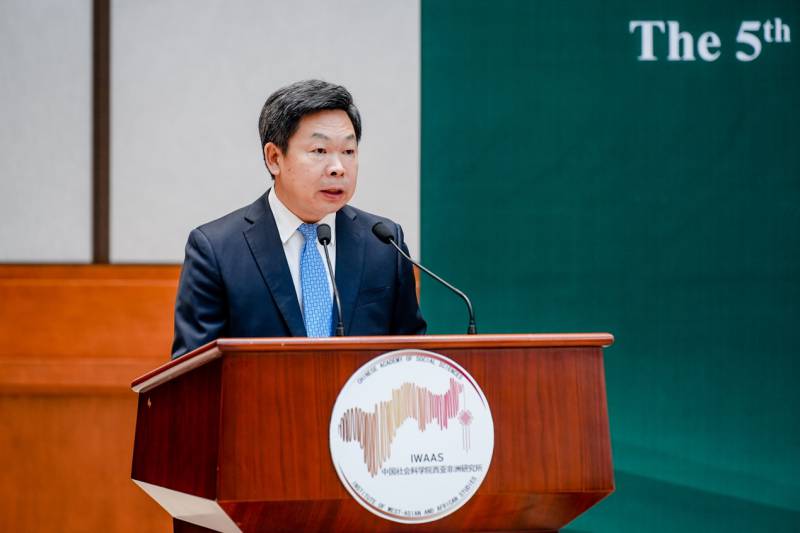
Zhao Zhimin is making opening remarks
Zhao Zhimin said, both China and the Islamic world are splendid and time-honoured civilizations with rich and profound connotation. For over a thousand years, friendly exchanges and mutual learning between civilizations play a significant role in relations between China and the Islamic world. Mutual learning between the two major civilizations is not only a valuable experience of friendly interactions, but also the key to promote global development and human progress. Respect for the diversity of civilizations is a precondition for mutual learning. We should protect the diversity of human civilizations in the way we respect for biodiversity of the nature. We should strongly oppose to the notion of cultural superiority, and uphold the richness and diversity of world civilizations. We should understand and respect for the differences between civilizations to fully explore the historical experience of mutual learning among civilizations. We should enhance mutual understanding among different civilizations, and promote people-to-people exchanges by creating a cooperative mechanism that is equal, open and inclusive. In this way we could promote the progress of human civilization, advocate the common values of all humanity, and jointly build a community with a shared future for mankind. This congress aims to further promote exchanges between China and the Islamic world through inter-civilization dialogue, to strengthen academic exchanges between think tanks, and foster people-to-people bond. I look forward to seeing experts and scholars to have an in-depth communication and contribute to enhancing mutual learning and exchanges between China and Islamic countries.
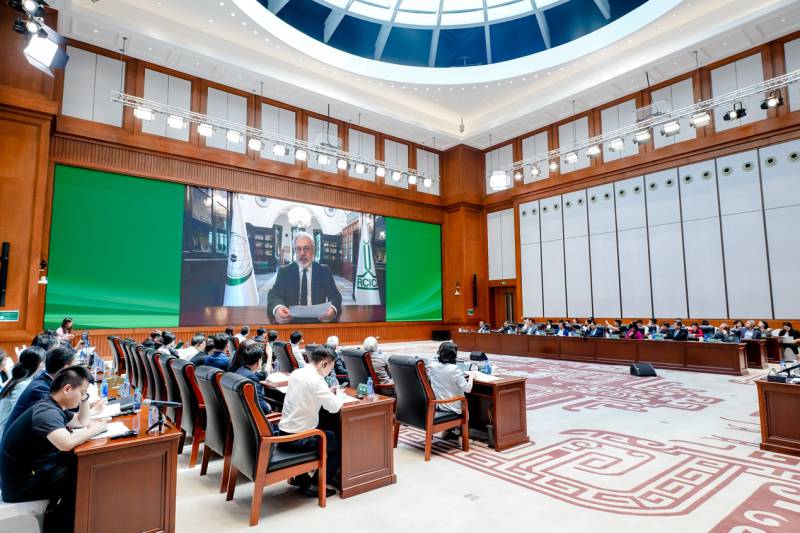
Mahmut Erol Kılıç is delivering a video speech to the opening ceremony
Mahmut Erol Kılıç said in his video speech, China and the Islamic world, the two major civilizations that play formative roles in the cultural of historical humanity, also mutually influenced each other in various areas. The relationship between China and the Islamic world have been based on mutual recognition, respect and harmony. The existence of Islamic world resources written by geographers about contact and trade relations with China dated from as early as the 17th Century. Likewise, the first Chinese record on the Islamic world, written by Du Huan in the late 8th Century made contribution to make the Islamic world correctly known in China at an early time. More encounters and mutual learning between China and the Islamic world continued to be produced in the late centuries. Despite of differences in religion, language and social traditions, exchanges between China and Islamic countries have reflected the notion of harmonious coexistence, which has set a good example and offered us rich research material.
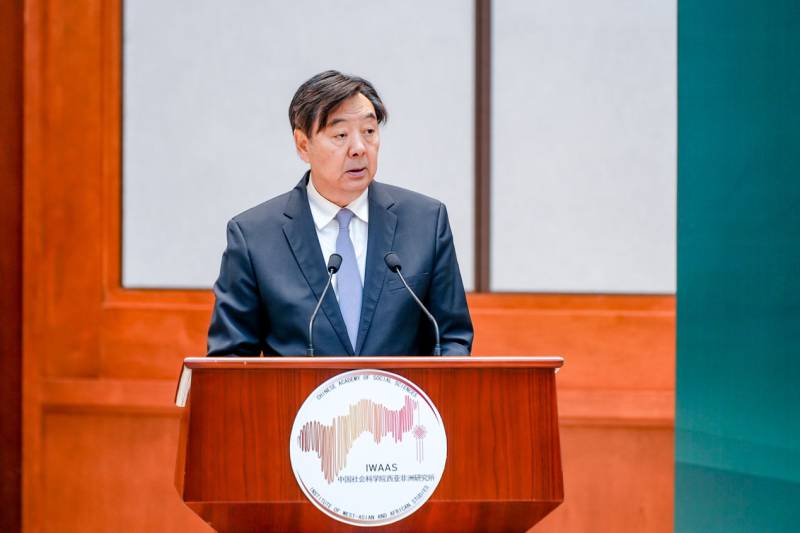
Zhai Jun is making opening remarks
Zhai Jun said, as the world’s two major civilization, China and the Islamic world have carried forward their friendly exchanges for a thousands of years, making important contributions to human progress. Historically, mutual learning between Chinese and Islamic civilizations have become a model of harmonious coexistence and friendly exchanges. Since modern times, based on mutual respect and trust, the Chinese and Islamic civilizations have entered a new chapter of inter-civilization exchange, dialogue, inclusiveness and coexistence. He said, we should continue to seek unity in diversity, pursuit harmony in differences, and promote development in exchanges. China is willing to work with the Islamic world to jointly accelerate the implementation of the Global Civilization Initiative (GCI), to enhance exchanges of national governance and people-to-people bond, and to advocate the shared values of peace, development, fairness, justice, democracy and freedom for all humankind. We uphold the idea of exchange not estrangement, mutual learning over cultural clashes, and equality instead of superiority.
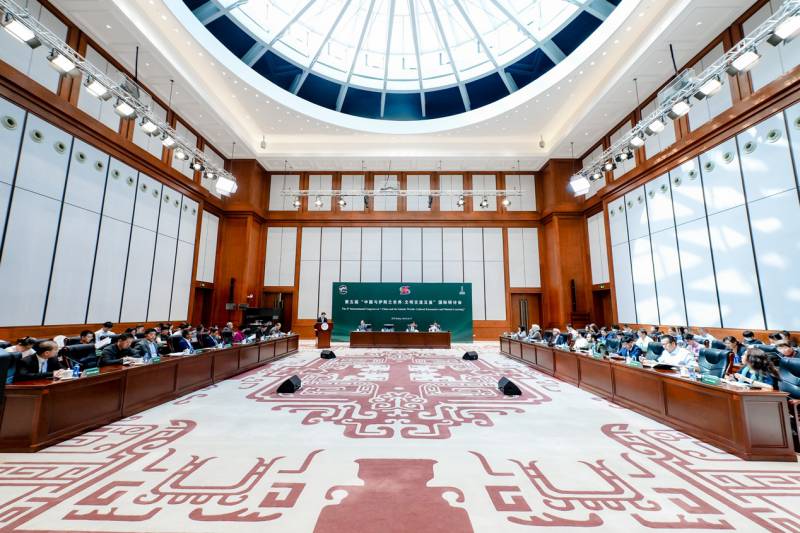
Participants at the congress
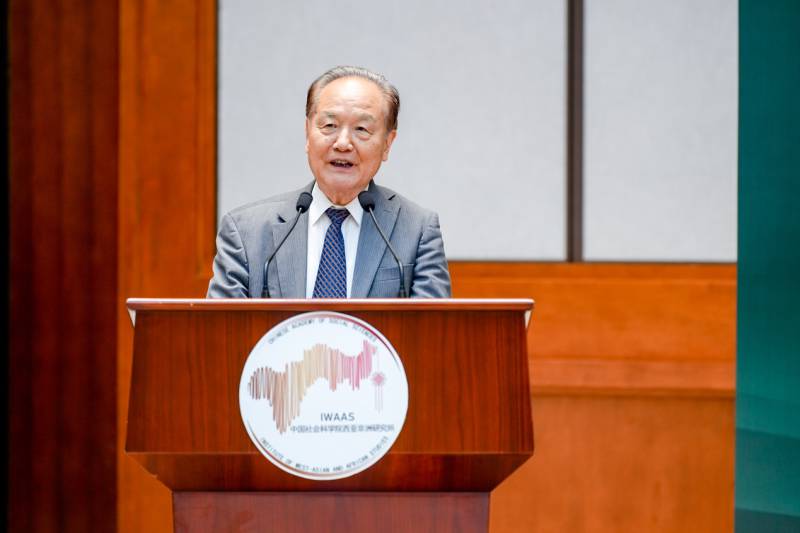
Wu Sike is delivering a keynote speech
Wu Sike, Former Special Envoy on the Middle East Affairs, also Former Ambassador of the People’s Republic of China to Egypt and Saudi Arabia, made a keynote speech titled “Exchanges and Mutual Learning for a Thousand Years of Friendship, Hand in Hand for a Better Future”. He pointed out that each civilization is a unique cultural entity differentiated from others, but all have contributed to the progress of human civilization. China and the Islamic world have found a pathway to friendly coexistence and win-win cooperation, which becomes a model for forming new types of international relations. This provides valuable experience for other countries to promote inter-civilization exchanges.
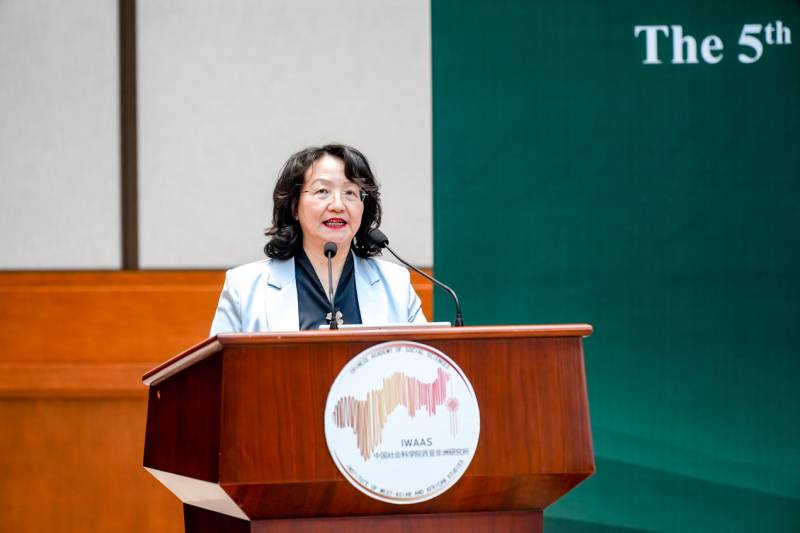
Zheng Xiaoyun is delivering a keynote speech
Zheng Xiaoyun, Director-General and Senior Fellow of Institute of World Religions, CASS delivered a keynote speech titled “Continuing to Promote Exchanges and Mutual Understanding Between the Civilizations of China and the Islamic World to Build the Global Community of Shared Future”. She believes that inter-civilization exchanges should be sustainable, and that the exchanges between countries along the Silk Road should be vigorous. In order to promote mutual learning between Chinese and Islamic civilizations, we should focus on the implementation of the GCI, seek for commonalities in people-to-people exchanges, unleash new vitality, and deepen mutual learning among civilizations so as to build a community with a shared future for mankind.
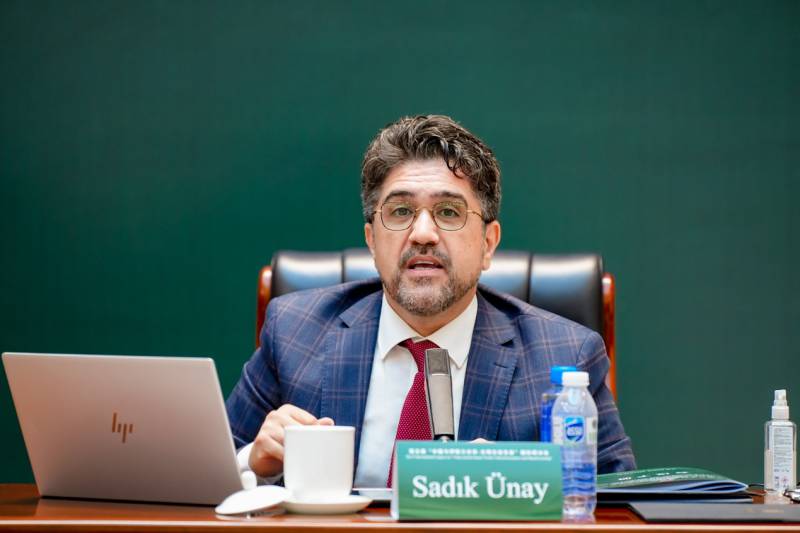
Sadık Ünay is delivering a keynote speech
Professor Sadık Ünay,academic consultant of IRCICA delivered a speech titled “Alternatives to Neoliberal Development: The Beijing Consensus and Beyond”. He highlighted the postwar approaches to socio-economic development, saying that in the postwar period, developing countries adopt more open systems and decided on their own model of development via policy innovation and experimentation. As different societies in the modern world are in constant search to improve their living standards and industrial-technological capacities, models of socio-economic development constitute a crucial channel of interaction.
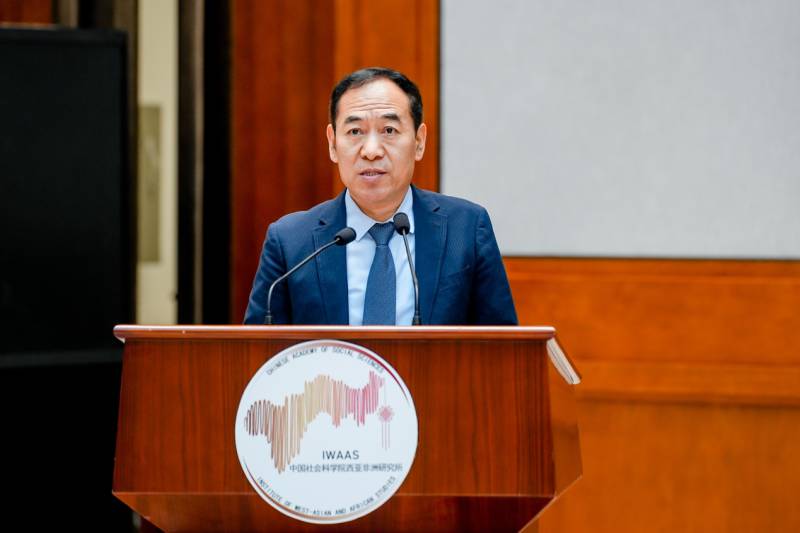
Ding Jun is delivering a keynote speech
Professor Ding Jun, Director of the Middle East Studies Institute, Shanghai International Studies University, delivered a speech titled “The Idea of Harmony between Humanity and Nature in the Perspectives of Chinese and Arab Islamic Civilization”. He said, both Chinese and Arab Islamic civilization uphold in the idea of harmony between humanity and nature, which reflects the inclusive and peaceful nature of the two great civilizations. Even in today's world where technology is undergoing rapid development, this idea still carries epoch-making significance and offers valuable reference to all us. They are precious spiritual resources for promoting global development, mutual learning among civilizations and the building of a community with a shared future for mankind.
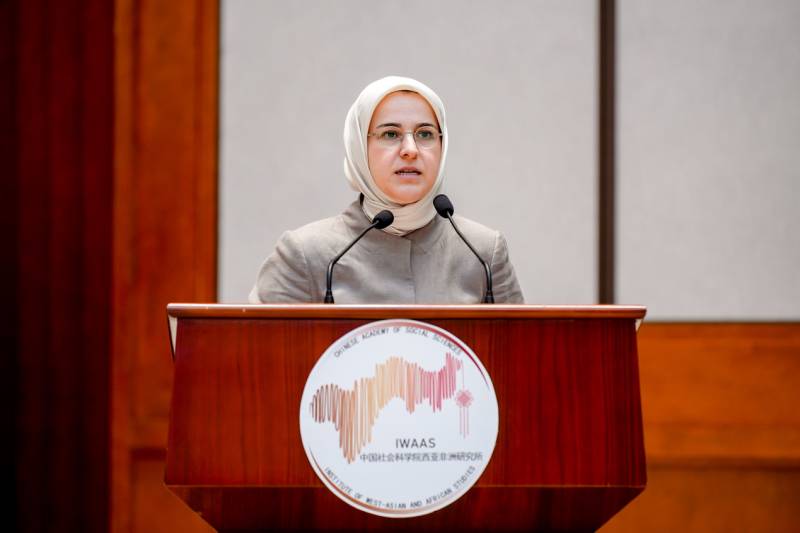
İpek Coşkun Armağan is delivering a keynote speech
İpek Coşkun Armağan, General Coordinator of Institute Social, Turkey, made a speech titled “Navigating Change: The Impact of Educational Systems on Societal Transformation”. She underlined the issues brought by modern liberal education in Turkey, such as over-competitiveness and social fragility. She said that educational system reform must be carried out to promote social transformation. Social emotional skills including grit, curiosity, empathy, trust and responsibility should be centralized in education systems, and teachers should become super trained impact agents. Educational reform should be based on our won cultural traditions and national conditions which are differ from the West.
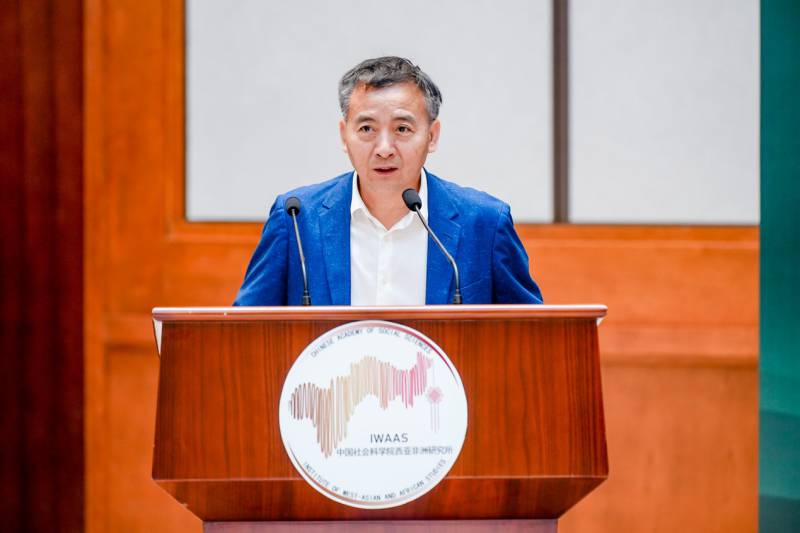
Tang Zhichao is delivering a keynote speech
Tang Zhichao, Director and Senior Fellow of Division of Politics Studies of IWAAS made a speech“The Significance of Strengthening Cooperation between China and the Islamic World from the Perspective of Global South”. He pointed out that China and the Islamic world, both included in the Global South, have in recent years supported each other on issues concerning each other’s core interests and major concerns. The two sides have achieved fruitful outcomes in cooperation, setting an example for Global South cooperation. It will become a strong force for maintaining world peace and development and ensuring the equality and rationality of global governance. It will also become a model of cooperation for building a community with a shared future for mankind and promoting the harmonious coexistence of different civilizations.
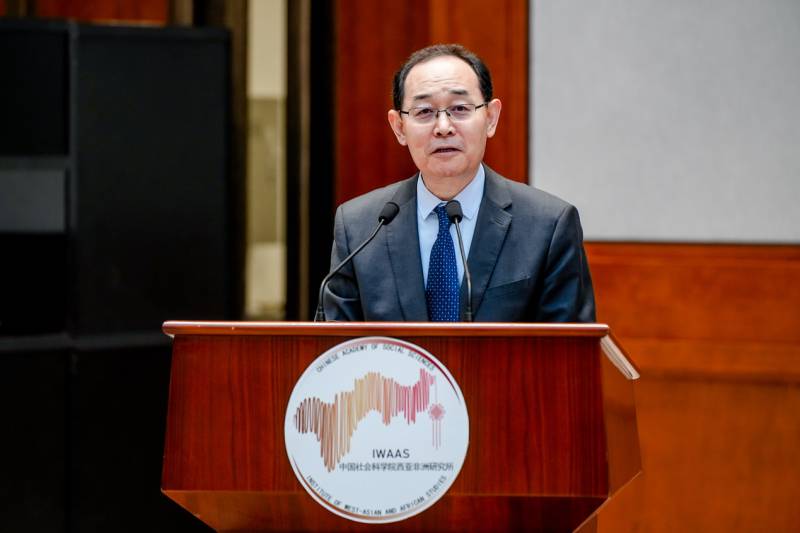
Wang Lincong is moderating the opening ceremony
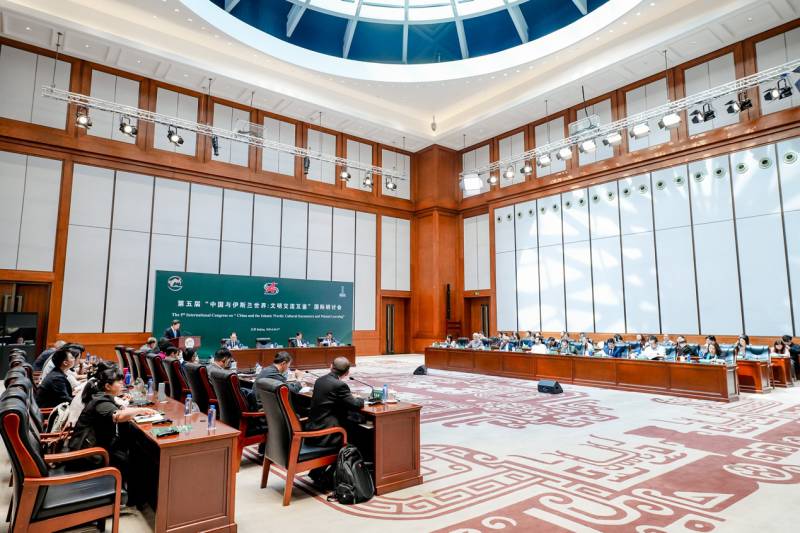
Participants at the congress
The congress, hosted by IWAAS, was attended by experts and scholars from CASS, Peking University, Minzhu University, Beijing Foreign Studies University, Northwest University and other Chinese universities, along with scholars from Research Center for Islamic History, Art, and Culture (IRCICA), Institute Social of Turkey and Marmara University of Turkey. The congress comprises four sessions: Session 1 “Historical Contacts between China and the Muslim World”, Session 2 “Encounters and Mutual Learning in Arts and Sciences”, Session 3 “Encounters in Literature, Traditions and Philosophy”, and Session 4 “China and the Muslim World in the Contemporary Global System”.
